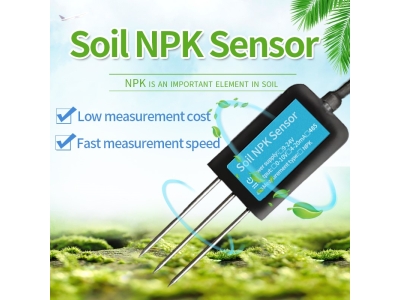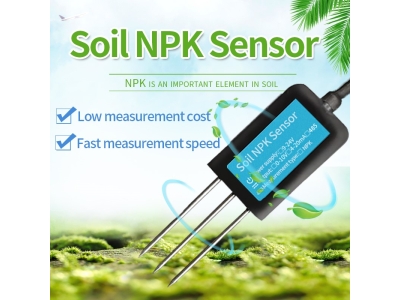Modern agriculture has become increasingly reliant on advanced technologies to maximize yields and efficiency while minimizing environmental impact. One such technology that has gained particular attention in recent years is soil sensors. These innovative devices provide farmers with real-time data on soil characteristics, enabling them to make informed decisions regarding irrigation, fertilization, and crop management. This article explores how soil sensors take the guesswork out of farming and empower farmers to optimize crop production while reducing waste and environmental harm.
Accurate Irrigation Management:
Soil sensors assist in accurate irrigation management by providing precise information on soil moisture content. With this data, farmers can determine when and how much irrigation is necessary, avoiding over or under-watering that can lead to crop stress and yield loss. This precision also reduces water waste, saving farmers money on water bills and minimizing the environmental impact of agriculture. Furthermore, soil sensors allow for efficient implementation of deficit irrigation techniques, which may lead to better crop quality and higher yields while reducing water usage.

Nutrient Management:
Soil sensors provide insights into soil nutrient levels, allowing for targeted fertilizer application. This approach saves farmers money on inputs and reduces the risk of nutrient overload, which can lead to environmental harm and lower yields. Precise nutrient management also maximizes the effectiveness of fertilizers, leading to improved plant health and higher-quality crops. Additionally, soil sensors can identify nutrient deficiencies or imbalances, allowing for prompt corrective action, thus preventing potential yield loss.
Precision Planting:
Soil sensors help farmers identify optimal planting dates and conditions by providing insights into soil temperature and moisture content. By planting only when soil conditions are favorable, farmers can avoid seedling stress and achieve higher germination rates. This results in uniform crop development, making it easier to manage pests and diseases and improve yield forecasting.
Effective Crop Protection:
Soil sensors help farmers identify plant stress early, allowing for timely intervention and protection against pests and disease. By monitoring soil moisture and nutrient levels, farmers can detect signs of stress before they become visible on the plant. This proactive approach enables timely intervention, reducing crop damage and yield loss. Additionally, monitoring soil moisture can prevent waterlogging, which can lead to root rot, a common problem in agricultural settings.
Environmental Sustainability:
Soil sensors promote environmental sustainability by reducing waste and minimizing the environmental impact of agriculture. By precisely managing irrigation and nutrition, farmers can reduce the amount of water and fertilizers used, minimizing runoff and pollution. Moreover, the use of soil sensors may enable farmers to replace traditional agricultural inputs with alternatives, such as compost or cover crops, which improve soil health and fertility while minimizing environmental impact.
Improved Decision Making:
Soil sensors facilitate data-driven decision making, empowering farmers to optimize crop production and manage resources effectively. By providing real-time information on soil conditions, soil sensors allow farmers to make informed decisions about irrigation, fertilization, and other crop management practices. This approach reduces guesswork and trial and error, leading to better outcomes and more efficient resource use. Furthermore, soil sensors allow farmers to track changes in soil characteristics over time, enabling them to adjust their management practices to achieve long-term soil health and fertility.
Conclusion:
Soil sensors have become an essential tool for informed decision making in agriculture, taking the guesswork out of farming and providing farmers with vital information for optimizing crop production and minimizing waste. By facilitating precise irrigation management, nutrient management, precision planting, crop protection, environmental sustainability, and improved decision making, soil sensors empower farmers to achieve higher yields, profitability, and long-term sustainable agriculture. As technology continues to evolve, soil sensors will become increasingly affordable and user-friendly, enabling farmers of all scales to benefit from this innovative technology. By embracing soil sensors, we can revolutionize modern agriculture and build a more sustainable future for farming and the environment.






